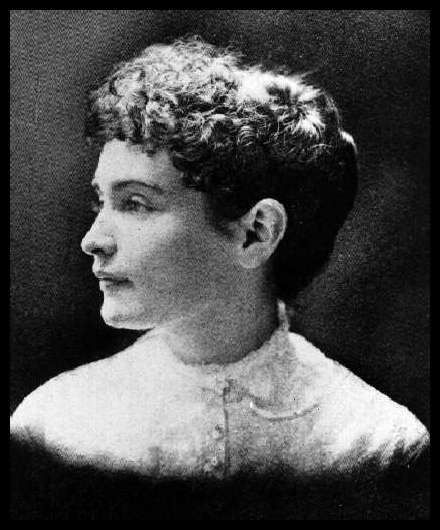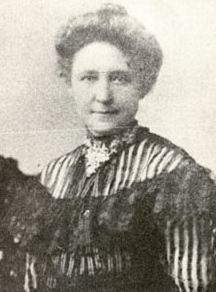Sometimes, it can be really helpful to talk about your problems.
My husband recently discussed our daughter’s cancer with the gas company and wouldn’t you know it, the next day a crew came out and fixed the gaping hole they had left in our yard a year ago. Never mind that they should have fixed it anyway or that they had been promising to for months. Tragedy got the ball rolling when nothing else worked.
Although effective, his strategy did cause some confusion when I asked how he had changed the company rep’s mind.
“I used the ‘c’ word,” he said.
I stared at him.
“You called her a c—-t?” I asked.
His eyes went wide.
“I told her our daughter has cancer.”
Oh, yeah. That “c” word.
Three years ago, our daughter was diagnosed with neuroblastoma at the age of 18 months. A type of pediatric cancer, neuroblastoma either grows aggressively or just lingers, sometimes taking years before it dies off on its own. The doctors are hopeful our Charlie has the latter. Already she has endured 12 rounds of intensive chemotherapy, six rounds of less intensive chemo and six surgeries. She is now off treatment and the tumors aren’t growing. As a family we’ll be holding our breath for a few years but as far as having your child get cancer goes, we are the lucky ones. (Don’t tell the gas company, though. They owe us.)
Please understand, I am not trying to make light of this disease or anyone’s struggle with it. It’s just that I’ve had a long time to deal with this, and crying inconsolably on the floor curled in a fetal position gets old after a few weeks. I’m also aware that any time I talk about Charlie’s cancer, I’m really only telling part of the story. She is the one who has been fighting this and one day she’ll be able to tell the story herself, no doubt much better than I can. But for right now, I’m the one who can type and the only perspective I can share is my own.
In the beginning, I didn’t want to talk about it. Talking about it made it real and I didn’t want it to be real. It was easier to tell a few friends and family members and have them relay the news to those who needed to know.
Once she started treatment, her condition was obvious to all but the criminally stupid. She lost her hair and was painfully skinny. Of course, logic is no impediment to some, such as the old man smoking a cigarette in front of her doctor’s office who reprimanded me for her appearance.
“Why would you shave that poor child’s head?” he demanded.
I looked pointedly at the sign behind his head that read “Pediatric Oncology and Hematology.” Nothing. Tempted to say, “She lost a bet,” I instead explained in small words what should have been obvious. (Why, you might ask, would anyone smoke in front of a children’s cancer clinic? Sadly, her doctors share a building with cardiothoracic surgeons, so it’s not unusual for the pediatric patients to run a gauntlet of carcinogenic smoke to get to treatment. Whoever came up with that brilliant office sharing arrangement should be shot.)
But if I was out without her and saw people who didn’t already know, I wouldn’t tell them. It just seemed like an awkward thing to bring up in, say, the aisles of the Food Lion. (“Jack just started transitional kindergarten and Charlie is battling cancer. OMG, is that the new Hamburger Helper?”) The few times I did share the news were — bad. People got upset, understandably, and I felt lousy for ruining their day. Also, once people know they feel inconsiderate talking to you about anything else. Trust me, sometimes you really want to talk about something else. Anything else.
But once she was through the worst of her treatment and the tumors had stopped growing, it became easier to talk about her condition. Perhaps it was because I didn’t feel the need to escape it as much myself, and it’s easier to share good news than it is to punch people in the gut with tragedy.
Also, I am proud of her.
I shy away from the term “cancer survivor.” For one thing, she’s not in remission, but also it seems like an insult to those who have passed away from the disease. There were many amazing children she met during her treatment — Gabby, Carter, Pieter, Miranda — who were just as fierce in their struggle and endured more in their tender years than any human being should in a lifetime. They didn’t lose their fight against cancer. The treatment stopped working. The cancer found a new way to grow. Unfortunately, cancer is a powerful, indiscriminate dick — it wouldn’t pick on children otherwise — and has an enormous capacity to change the rules and overcome whatever is thrown at it. These children didn’t lose their struggle any more than Charlie won hers. She simply got lucky.
And yet…
…and yet that child put up the fight of a lifetime. Before she could even take her first steps she had been pumped full of poison and poked with needles and sliced open in three different places. She endured weeks of confinement to a hospital bed when she should have been learning to walk, vomited for hours when she should have been figuring out her favorite foods.There were times when I looked at her and felt like saying, “It’s okay if you want to give up. I don’t want you to, but I would understand.” But this baby, this child in diapers who slept with her fingers entwined in my hair every night and cried when the end credits rolled on “Mickey Mouse Clubhouse,” found some way to keep going.
You better be damn straight I am proud of her.
Sharing her condition also helps explain her developmental delays. Although she has recovered physically from the chemo and is the size of a strapping 5-year-old, developmentally she is somewhere between the ages of 2 and 3. Or, in the words of a little turd at her ballet school, “She talks funny. She’s wearing a diaper!” (“You talk funny!” I wanted to shout. “And your mother is an alcoholic whore!” Instead I chirped, “She’s just catching up!”)
There are times when I would like to talk about it even more. For example, those instances when she’s throwing a tantrum on the floor at Target — she is mentally a 2-year-old, after all, and 2-year-olds excel at tantrums — and I get the stink eye from some old bat who forgets what it’s like to be a parent. In those moments I would love nothing more than to shout: “She has cancer! What’s your excuse for being socially awkward?” And then maybe spit on the floor. I don’t know, that feels inappropriate. I could probably get over it, though.
But it was only recently that I discovered the best use for sharing her story.
Even though I can be private about some things — say, my child getting treated for cancer — for some reason complete strangers feel free to tell me things they really, really shouldn’t.
“I always wanted kids,” said the cashier at the Container Store to me one day, for no apparent reason. “But my first husband didn’t want them and then my second husband, well we tried and tried and then it turned out he was sterile.”
Um, I’ll just take my receipt. Please?
I am convinced it has to do with my red hair. When you are a redhead, you always remind people of someone they know. (Ugh, and it’s always the ex-wives. Ginger ladies, please, stop getting divorced so much, I’m begging you.) As a result, they are always taking small talk to places it just doesn’t belong when you are around.
But now I have a wonderfully powerful weapon against that, which I only realized on a recent outing to TCBY with Charlie.
We had barely taken our seats when the bearded youngster behind the counter started talking.
“I almost didn’t make it to work today,” he said.
“That’s too bad,” I said.
“Yeah, it was really bad,” he continued. “It was, like, emergency bad.”
I cringed.
“My girlfriend was bleeding everywhere?”
Stop.
“And we thought she might be having a miscarriage?”
It.
“We had to go to the hospital and everything.”
Right.
“We really want this baby, which surprises everyone because we are so young.”
Now.
“I’m really sorry,” I said and don’t get me wrong, I was sorry. It just seemed like there might have been someone more appropriate for him to talk to about this. Someone who knew his first name, for example.
He nodded.
“We won’t find out until Monday whether she lost the baby.”
And then it hit me: fire with fire.
I turned to him and pointed at Charlie.
“She has cancer.”
He stared. Silence ensued. A cricket rode past on a tumbleweed and I went back to eating frozen yogurt with my daughter.
Yes, talking about your problems can be pretty helpful indeed.
This post originally ran a year ago. I am rerunning it now to mark the one-year anniversary of my attempts at blogging. Many thanks for everyone’s kindness and support.








 Playdates are a necessary evil of modern childhood. It’s not like the old days, when kids ran wild through the neighborhood with their friends and then booked it home when the streetlights came on.
Playdates are a necessary evil of modern childhood. It’s not like the old days, when kids ran wild through the neighborhood with their friends and then booked it home when the streetlights came on.